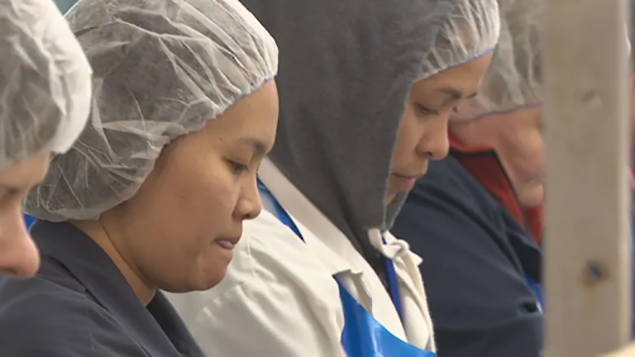One of the critical concerns of Canadian food producers in the midst of the coronavirus crisis is that of temporary foreign workers (TFW) and seasonal agricultural foreign workers. Last week the federal government announced travel bans into Canada for non-residents, although Americans were exempted.
There were great fears in the agricultural, and food processing sectors about the severe effect this would have on food production in Canada. Canadian farms and food processing operations typically rely on some 50-60,000 foreign workers annually to help with planting, maintenance, and harvesting of crops and in livestock operations.
About three per cent of that total number are hired by food processing plants including seafood and meat packing operations. The P.E.I Seafood Processors Association for example says that about 30 per cent of their workforce is comprised of TFW’s.
Most of these workers are employed under the Seasonal Agricultural Worker Programme (SAWP) which allows for stays in Canada of up to eight months.
The government then realised the effect of a ban on TFW’s would have and relented. In a statement on the Immigration, Refugee and Citizenship website, minister Marco Mendicino said, “Allowing foreign workers to enter Canada recognizes their vital importance to the Canadian economy, including food security for Canadians and the success of Canadian food producers. The arrival of farm workers and fish/seafood workers is essential to ensure that planting and harvesting activities can take place”.

Minister of Immigration, Refugees and Citizenship Marco Mendicino speaks during a press conference on COVID-19 in West Block on Parliament Hill in Ottawa, on Thursday, March 19, 2020. In a statement he said that the announcement regarding entry of TFW’s “will ensure both a robust response to addressing the spread of the virus, and that our farmers, fishers and other producers have the workers they need, when they need them, to strengthen Canada’s food security and provide other vital services, (Justin Tang/The Canadian Press)
The government also announced that those entering under the low-wage stream of the TFW programme will be allowed to stay for two years instead of one. The government indicated that this would reduce the administrative burden for employers while adding a bit more workforce stability to their operations especially in food processing.
In announcing the exemption, the government said all TFW’s would undergo health screening before leaving their country to come to Canada, and would have to be isolated for 14 days upon arrival.
While farmers, and food production operations are relieved at the news, there is still some question as to how at least some of the tens of thousands of workers from abroad will get here with flight restrictions in their own countries. Last week farm groups suggested the possibility of Canada engaging charter flights to bring the workers in, although there’s no word on whether that could or would be possible.
Additional information sources:
- The Telegram: E. McCarthy: Mar 22/20: Temporary foreign workers will be allowed into Canada
- Canadian Press (via Global): Mar 20/20: Temporary foreign workers exempt from some COVID-19 travel restrictions
- Reuters/GFN (via Alberta Farmer): K. Johnson: Mar 20/20: Temporary foreign workers to be allowed in, Canada reiterates
- CBC: S. Bruce: Island farmers relieved temporary foreign workers allowed to enter Canada







For reasons beyond our control, and for an undetermined period of time, our comment section is now closed. However, our social networks remain open to your contributions.